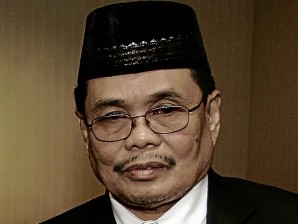ILIGAN CITY, Lanao del Norte—Pressed for time, the Bangsamoro Transition Commission is tapping civil society organizations in Mindanao to solicit comments and other input from various local communities and social sectors in the drafting of the Basic Law formally establishing an autonomous Bangsamoro political entity.
The Basic Law will serve as the charter of the future Bangsamoro government that, in response to the clamor for more meaningful autonomy, will replace and have far greater political and economic powers than the current Autonomous Region in Muslim Mindanao.
The drafting of the Basic Law is the principal role of the Bangsamoro Transition Commission, or BTC, which was created by President Benigno Aquino III last December. The BTC is also mandated to conduct public education and consultation activities.
“The various stakeholders, both rights-based and interests-based, and the people at large have to be engaged, informed, and their views sought in the writing of the Basic Law,” said Moro Islamic Liberation Front chief negotiator and BTC chair Mohagher Iqbal.
“I believe that some of the best ideas are down there among the people and these cannot be accessed until we engage them with sincerity and frankness,” Iqbal told the Inquirer in a telephone interview.
Iqbal said he was authorized by the BTC to enter into partnerships with civil society groups through an Oct. 4 resolution of the 15-member all-Bangsamoro body.
During kick-off rites of the 41st round of peace talks in Kuala Lumpur last Oct. 8, Iqbal announced the BTC’s plan before the government and MILF panels and the International Contact Group.
The signing of a Memorandum of Agreement between the BTC and the civil society organizations is slated for Oct. 17 in Cotabato City.
These organizations “will help the BTC in reaching out to the people, as a necessary component of the process in the crafting of the Basic Law, without prejudice to the BTC’s prerogative to engage other entities to undertake the same activities,” Iqbal said. “More importantly, the BTC would still do the most crucial and overall public engagement, especially involving key players and agencies in government.”
The upcoming comprehensive peace agreement between the government and the MILF will principally guide the formulations in the Basic Law. Such peace pact will consist of the Framework Agreement on the Bangsamoro (FAB) plus its annexes on transitional modalities, wealth-sharing, power-sharing and normalization.
Of the four annexes, power-sharing and normalization are still up for negotiaton. The parties are upbeat they can conclude a full peace pact before the year ends.
According to Iqbal, the delay in drawing up the remaining annexes, especially on power-sharing, “seriously impedes the working timeline of the BTC in crafting the Bangsamoro Basic Law.”
Iqbal noted the advice of three congressmen back in August for the BTC to come up with a draft law by January 2014 so that Congress would have ample time to consider and pass the enabling legislation for it.
Representatives Pangalian Balindong, Rufus Rodriguez and Jesus Sacdalan attended the 39th round of talks as observers last August.
During his State of the Nation Address last July, President Aquino asked Congress to pass the Basic Law before the end of 2014.
The Bangsamoro transition roadmap agreed on by the two sides targets the holding a plebiscite to ratify the Basic Law and define the territorial scope of the future autonomous entity by early 2015.
Mr. Aquino, who has vowed to make peace with Moro rebels one of his legacies, has said he wants the Bangsamoro government established within during his term, which ends in 2016.
If the Basic Law is ratified mid-2015, elections for new set of regional leaders can be held along with the national elections in May 2016.


